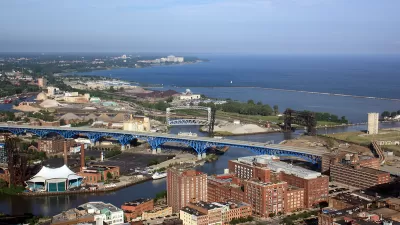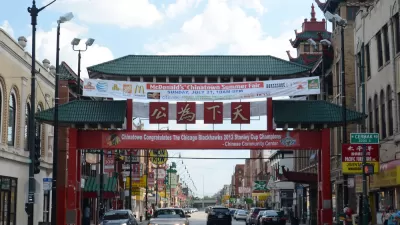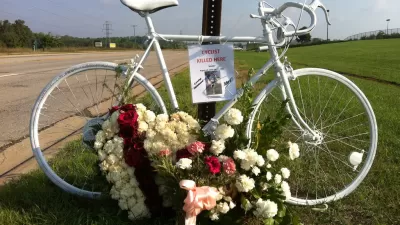Decades of racist policy and a lack of critical resources have left Cleveland in a perpetual state of economic fragility. The city can't afford another recession.

Cleveland has been hit hard over several decades by waves of population decline, recession, and lack of investment.
"City services began being slashed in the 1970s, then federal aid to cities fell dramatically in the 1980s and never recovered. Cleveland’s finances were ravaged again by the Great Recession – its neighbourhoods were devastated by foreclosure, and then, in 2012, Republican Governor John Kasich cut state aid to cities by half," writes Jake Blumgart.
The Cleveland that lifelong residents remember from before the 1970s no longer exists, says Blumgart, citing "some of the most inexorable forces in US history: anti-Black racism, deindustrialisation, population decline, state-level interference and aggressive suburbanisation."
Legislators and experts fear that without support in coming months, Cleveland could take another hit. "Like many US cities, Cleveland has spent the past half-century or more skipping from catastrophe to catastrophe. It can ill-afford another one," Blumgart writes. Cities like Detroit and Cleveland are unique, says Blumgart—no other advanced nation in the world has a racialized geography like the United States. The article lays out such practices as exclusionary zoning, restrictive covenants, and segregation as spurring the poor fiscal outcomes in the city of Cleveland.
"All of this ugly racial history devastated municipal finances," explains Blumgart. "All of this ugly racial history devastated municipal finances. Just as Cleveland became the home of the vast majority of the region’s low-income population, with the residents in the most need of public assistance, it became less and less able to maintain services."
Cleveland is a city that can't handle another recession.
FULL STORY: Cleveland is still suffering from the last recession. It can’t afford another

Planetizen Federal Action Tracker
A weekly monitor of how Trump’s orders and actions are impacting planners and planning in America.

Map: Where Senate Republicans Want to Sell Your Public Lands
For public land advocates, the Senate Republicans’ proposal to sell millions of acres of public land in the West is “the biggest fight of their careers.”

Restaurant Patios Were a Pandemic Win — Why Were They so Hard to Keep?
Social distancing requirements and changes in travel patterns prompted cities to pilot new uses for street and sidewalk space. Then it got complicated.

California Homeless Arrests, Citations Spike After Ruling
An investigation reveals that anti-homeless actions increased up to 500% after Grants Pass v. Johnson — even in cities claiming no policy change.

Albuquerque Route 66 Motels Become Affordable Housing
A $4 million city fund is incentivizing developers to breathe new life into derelict midcentury motels.

DC Area County Eliminates Bus Fares
Montgomery County joins a growing trend of making transit free.
Urban Design for Planners 1: Software Tools
This six-course series explores essential urban design concepts using open source software and equips planners with the tools they need to participate fully in the urban design process.
Planning for Universal Design
Learn the tools for implementing Universal Design in planning regulations.
Heyer Gruel & Associates PA
JM Goldson LLC
Custer County Colorado
City of Camden Redevelopment Agency
City of Astoria
Transportation Research & Education Center (TREC) at Portland State University
Camden Redevelopment Agency
City of Claremont
Municipality of Princeton (NJ)





























